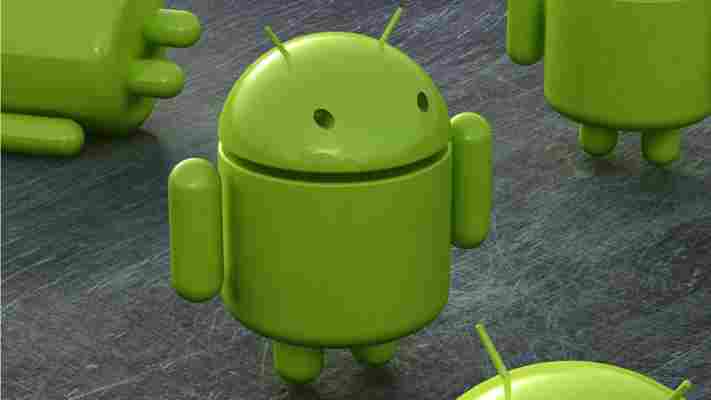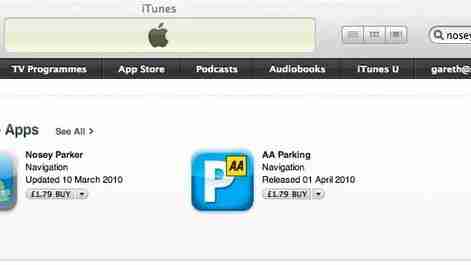Lose your keys? Find them with your smartphone. It seems like a simple and logical enough idea that you wonder why it’s never been done before.

The Cobra Tag that we found over at Uncrate definitely gave us of those ‘why didn’t I think of that’ moments. It’s a small dongle that connects to your iPhone, Android or Blackberry by Bluetooth. Then you can attach it to your keys, dog, TV remote or any other object you need to keep track of.
Then, when the object leaves Bluetooth range, you can set it to send you an email or text message with exact GPS coordinates.
There’s another use for the PhoneTag though and that’s what really excites us. Instead of finding your items with the PhoneTag, you can also use it to ring your smartphone. That means no more frantic searches through a house with no land-line for your phone. Just grab your keys and punch the button on the PhoneTag. Ring ring!
I’m sure there’s other uses that you could think up for a Bluetooth location-enabled dongle for your smartphone, let us know what you think in the comments.
The Cobra Tag runs $60 from Cobraom.
LG’s Optimus Sol Arrives Mid-September In Europe
LG announced the impending release of the Optimus Sol in a press release on Monday , giving the phone a ship date of mid-September for Europe, with the Central and South American regions to follow soon after.

The phone runs on Android 2.3 Gingerbread, has a 1GHz CPU, 512MB RAM, and ships with a 2GB Micro SD card. It has a petite profile, measuring in at just 9.8mm thick, and has a 3.8-inch “Ultra AMOLED” display, which the press release says “makes content easy to see even in bright and sunny conditions”.
The phone has a 5-megapixel shooter on the back, capable of recording VGA resolution video at 24 frames per second. It ships with Adobe Flash 10.1 and can apparently boost its own battery life by up to 30% using “an enhanced idle-based power management system”. You’ll be able to purchase it in black, white, and titan (whatever that means) once it is available.
How mobile apps and gadgets will change your health
The idea for our running theme this week was to talk about things that can help to improve your health. You see, we have some very healthy people around here at TNW. Courtney Boyd Myers is a fan of bending herself into unnatural positions and calling it yoga, Zee appreciates traveling great distances on foot and ending up in the same place he started. Some call it running. Joel Falconer and I? We call it madness.

For Joel and I, lacking the time, motivation and desire to “feel the burn” has turned us toward something more along the lines of “what’s next” instead of “what’s now”. For that, I’d like to offer some ideas about what we’ll see in the next couple of years as mobile technologies continue to pair with traditionally sedentary fields of practice such as healthcare.
Oh sure, you can go out right now and buy a blood pressure cuff that plugs into your iPhone or iPad and records the information. I don’t understand why they decided to make this a wired peripheral though. All of the information could be sent via Bluetooth and the motor itself can easily run off of a couple of AA-sized batteries. I think we’ll see fewer wires moving forward as people become more interested in wireless sync and features.
At present there are very few things that your mobile devices can do to help you monitor your health in a proactive way. Generally speaking, everything that’s out there now requires a load of manual input in order to track history. That’s reactive, and it’s just not going to cut it for our generations.
Moving forward I’d love to see a company that makes a full line of Bluetooth (or even WiFi communication-enabled) devices that will keep a better track of what you do. Wake up, step on the scale, go to your morning workout and then finish the rest of your day. At the end of it all, you should be able to see how you slept, what your weight is, how much activity you did based on device movement and a wealth of other information. For now…we can take our blood pressure.
This is actually the larger scale focus of an application that I’ve been wanting to build for some time. However, in order to do this, it’s going to take a larger scale than I’m willing to tackle at this point.
I’d love to see (and genuinely think that we will) a network of licensed healthcare providers who will work to set up diet and exercise plans that can then be loaded into an application. From there, based on the information that your device gathers about you, the recommendations will change in order to help you reach or maintain your goals.
You pigged out on pizza last night, but you’re on an 1800 calorie diet? The system would adjust your diet the next day to get you back where you need to be. Your goals say that you should be doing cardio every other day and you keep skipping it? Recommendations would appear for things that you could do to make up for lost workout time, while still keeping you within the necessary and stated confines of your office.
In short, I’d love to see our phones do what we’re presently not able to find — They should be a constantly-available coach and training aid to help us monitor our progress toward goals. I suppose that you could pay someone to live with you and accomplish the same, yet it would be far more difficult to stick them in your pocket and ask their advice at dinner.
It will be interesting to see how devices and peripherals continue to evolve, as well. While I don’t think that Apple will be working a heart rate monitor or blood oxygen sensor into an iPhone anytime soon, both of these could easily be done by third parties. The same is true for diabetes monitoring equipment, lung functions and so much more.
For now, we’ll continue to get better sleep , keep our blod pressure in check and use apps like FitFu to work out when we wouldn’t otherwise have the time. But moving forward, websites and desktop applications aren’t the only things that need to go mobile.
